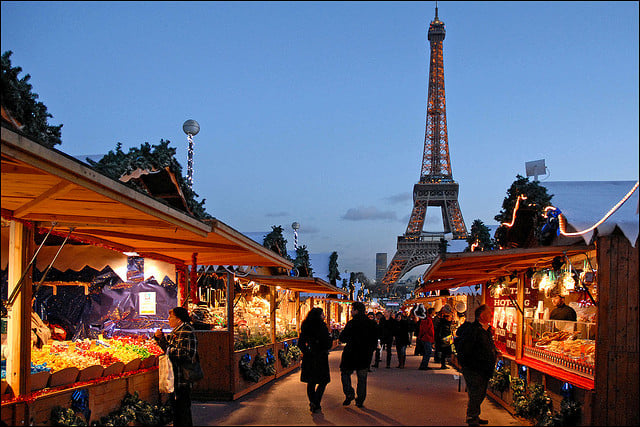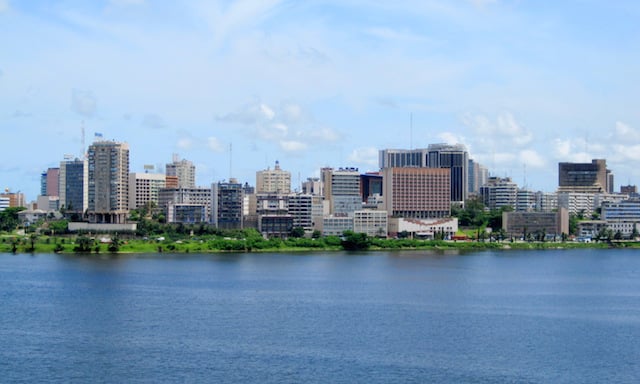Top Dialects of the French Language
Popularly referred to as the “language of love”, the French language has close associations with Paris, and conjures up images of romantic cobblestone alleys illuminated by the soft glow of distinctly Parisian streetlamps. Indeed, French originated in France, but has since spread all over the world, and features many dialectical variations. We’ve compiled some of the major ones in this list.
Standard French (France)
 Image of Paris via Jean-Pierre Dalbéra / flickr
Image of Paris via Jean-Pierre Dalbéra / flickr
The variety of French that’s spoken in France is referred to as le français neutre, or “neutral French”, and is spoken by over 50 million people in and around France. It is strongly influenced by the Académie français, the official administration that makes lexical and grammatical decisions about the French language. Standard French is also what’s most commonly taught in language classes, so if you’re learning French as a second language, you’re almost certainly learning this dialect.
Canadian French/Quebec French (Canada)
Though English is the most common language in Canada, there are some 6.2 million French speakers in Quebec, and another 700,000 in other regions. Many cities, such as Montreal, use French in education, the government, and the media. Though Canadian French and Standard French are mutually intelligible (meaning speakers of both dialects can understand each other), there are some important vocabulary differences that you don’t want to get wrong. For example, in Canadian French the adjective plein(e) means “full of food”, whereas in France, it means “pregnant”!
How good is your French? Find out by taking our free online French level test!
Given that Quebec is the province in which French is predominantly spoken, the term “Quebec French” was used to describe all varieties of French spoken in Canada. However, recently, the term “Canadian French” has been favored as an umbrella term, which includes some less common dialects such as Acadian French, which is spoken in New Brunswick.
African French (Africa)
It may come as a surprise that more French speakers live in Africa than in Europe. Indeed, French is spoken as an official or co-official language in several countries in Western Africa, and an estimated 120 million people speak it.
African French is an umbrella term used to describe the language spoken in many cities and countries; as such, it consists of several sub-dialects. For example, the variety of French spoken in Abidjan (the economic capital of Ivory Coast) has many loanwords from the indigenous language Mandinka. These include une go, which means “girl” or “girlfriend, and un bra-môgô, which is roughly equivalent to “dude”.
 Image of Abidjan via RyansWorld / Wikipedia
Image of Abidjan via RyansWorld / Wikipedia
In some urban areas, a new variety of French called Français Populaire Africain (Popular African French) has come about in recent years. It was at first associated with members of the lower class, but has since then been adopted as a second among the upper class, and stands as a symbol of social acceptance.
Belgian French (Belgium)
French is the second most common language in Belgium, and is spoken natively by some 4.5 million people — approximately 40% of the population. Given Belgium’s close proximity to France, Belgian French is quite similar to Standard French, and is characterized mainly by subtle vocabulary differences. These words that are used uniquely in Belgian French are called belgicismes (“Belgicisms”).
For instance, whereas “potatoes” are pommes de terre in Standard French, they are patates in Belgian French; similarly, a “sofa” is a canapé in Standard French, but a divan in Belgian French.
From Europe to North America to Africa, French is rapidly growing as one of the world’s most popular languages. Given its wide geographical spread, it’s no surprise that there are several different varieties of French, each with their unique accent, vocabulary, and quirks. But no matter what variety of French you want to learn, your best shot at perfecting the language is to take tailor-made French classes taught by a native speaker. It’s the fastest way to improve your skills, so you can understand and be understood whether you’re traveling to Montreal, Paris, or Abidjan.


